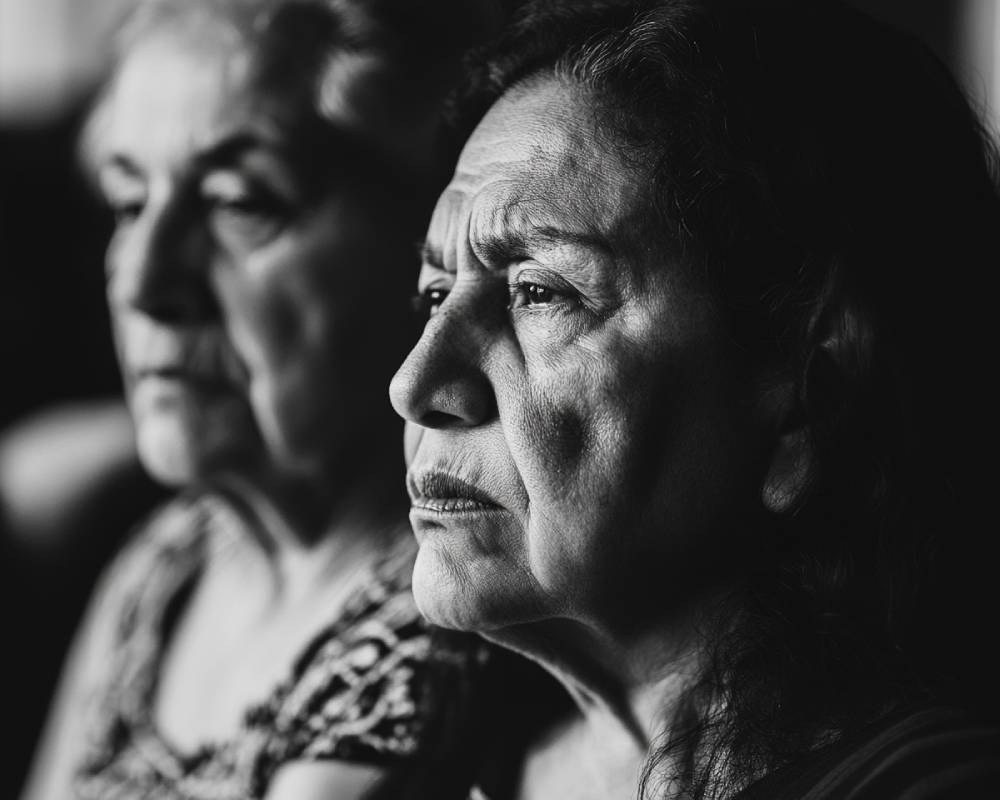5 Real-Life Examples of Generational Trauma You Might Relate To – Generational trauma—also called intergenerational trauma—is a psychological phenomenon where the effects of trauma are passed down through families. Whether from war, abuse, addiction, systemic oppression, or toxic family patterns, the emotional scars don’t always stop with the person who first experienced them. In fact, the legacy of trauma often lives on in behaviors, beliefs, and unspoken family rules, influencing multiple generations.
In this blog, we’ll dive into five real-life examples of generational trauma that you may find surprisingly familiar. Along the way, we’ll also explore how to recognize these patterns, the emotional effects they carry, and how healing is possible—with the right support, such as generational trauma therapy available at InnerWorks Healing Therapy in Salt Lake City.
🌿 What Is Generational Trauma?
Before we dive into stories, let’s define the term. Generational trauma, also known as intergenerational trauma, refers to emotional, psychological, and behavioral wounds that are passed from parents to children, often without any discussion or awareness. These wounds may stem from historical injustices, family abuse, addiction, poverty, or other prolonged stressors. Children may inherit fear, mistrust, or guilt that originated generations earlier.
Signs of generational trauma can include:
- Chronic anxiety or depression with no identifiable cause
- Hypervigilance or an intense need for control
- Difficulty trusting others
- Dysfunctional relationship patterns
- Substance abuse or emotional shutdown
Understanding the examples of generational trauma in real families can help you identify whether you might be carrying something that was never yours to begin with.
1. 🌪️ The “Silent Soldier”: Trauma Passed Down from War
When James came to therapy in Salt Lake City, he struggled with emotional numbness, detachment from his kids, and constant feelings of guilt. He had never been to war—but his grandfather had.
James’s grandfather, a WWII veteran, never spoke about the battlefield. Instead, he coped by emotionally withdrawing from his wife and children. His father inherited that same stoicism, believing that real men never cry or talk about their problems.
James grew up in a home where silence was the norm and vulnerability was seen as weakness. Now a father himself, James found it hard to connect emotionally with his children, even though he longed to break the cycle.
This is one of the clearest real-life examples of generational trauma: unprocessed wartime trauma passed down through emotional suppression and rigid gender roles. Through trauma-informed therapy in Salt Lake City, James learned to process the inherited emotional wounds, ultimately becoming more emotionally present for his own family.
Keywords used:
Examples of generational trauma, Trauma passed down through generations, Emotional effects of generational trauma, Generational trauma Salt Lake City
2. 🍷 A Legacy of Addiction: Family Trauma That Repeats
Maria grew up with an alcoholic father and swore she’d never be like him. But by her late 20s, she found herself drinking daily to numb her anxiety.
Her family normalized addiction as a coping mechanism. Her grandmother also drank heavily to cope with losing her husband to suicide—a man who had never recovered from childhood abuse. None of this was ever talked about.
This is a pattern we frequently see in family trauma therapy in Utah—trauma that gets repressed rather than healed. Family dysfunction and trauma often show up as substance abuse, emotional avoidance, or co-dependency.
Maria’s healing journey involved understanding that her drinking wasn’t about weakness or lack of willpower—it was about inherited emotional pain that was never addressed.
By seeking generational trauma therapy with a trauma therapist near her in Salt Lake City, Maria was able to explore her roots and rewire her relationship with emotional pain and addiction.
Keywords used:
Family trauma patterns, Breaking generational trauma, Inherited emotional trauma, Therapy for childhood trauma, Trauma therapist near me Utah
3. 💔 The Unseen Grief of Lost Culture and Identity
David was a second-generation immigrant from Mexico living in Utah. As a child, he was told to speak only English, to act “American,” and to avoid anything that made him seem “different.” His parents, fearful of discrimination, encouraged him to hide his roots.
Years later, David felt lost—disconnected from his cultural identity, emotionally numb, and plagued by anxiety. In therapy, he learned that his emotional pain stemmed from generational trauma tied to cultural erasure, systemic racism, and internalized shame.
This story echoes many others in marginalized communities. Trauma isn’t always physical abuse—it can also be the emotional abuse through generations caused by forced assimilation, discrimination, or loss of cultural identity.
David’s path toward healing involved ancestral trauma healing, reconnecting with his roots, and reclaiming the pride and identity that had been buried in silence.
Keywords used:
Stories of generational trauma, Emotional healing from family trauma, Legacy of trauma in families, Coping with generational trauma, Ancestral trauma healing
4. 💣 Explosive Anger: The Legacy of Emotional Abuse
Samantha came to InnerWorks Healing Therapy struggling with explosive anger that hurt her relationships. She was afraid she was becoming like her mother—harsh, controlling, and unpredictable.
In therapy, she began uncovering how her mother had suffered emotional abuse as a child—never receiving love unless she performed or obeyed. Samantha, in turn, had grown up walking on eggshells, terrified of being “too much” or not enough.
She didn’t just inherit anger—she inherited a belief that love was conditional.
Generational trauma therapy helped her identify and name the family trauma that repeats, as well as practice tools for emotional regulation, self-worth, and forgiveness.
This example shows how emotional abuse through generations doesn’t end unless someone consciously breaks the cycle. Samantha did just that.
Keywords used:
Breaking toxic family patterns, Generational trauma and relationships, Therapy for gay relationships, How to recognize generational trauma, Emotional effects of generational trauma
5. 🧊 The Cold Shoulder: Legacy of Avoidant Parenting
Ethan described his childhood as emotionally “cold.” His parents weren’t abusive—they were just… unavailable. No hugs. No praise. No real presence.
When he became a father, Ethan found himself repeating the same patterns. He loved his son but felt uncomfortable showing affection.
During trauma healing therapy in Utah, Ethan traced the origins of this avoidance back to his great-grandparents—survivors of the Great Depression, who valued survival over softness. Emotions were a luxury they couldn’t afford, and that mentality got passed down.
This is a common yet often invisible example of how trauma is inherited. Ethan’s healing involved inner child healing and re-learning how to feel safe with affection and vulnerability.
Now, Ethan is building a home filled with emotional warmth—the very thing he never received.
Keywords used:
Family systems trauma, PTSD and generational trauma, Trauma recovery in Utah, Healing family trauma Salt Lake City, Inner child healing Salt Lake City

👁️🗨️ How to Recognize Generational Trauma in Your Life
You might relate to these stories in small or big ways. Generational trauma is often so normalized in families that it goes undetected for decades. Ask yourself:
- Do I struggle with repeating patterns in relationships?
- Do I feel guilt or fear without clear reasons?
- Was vulnerability discouraged or punished in my home?
- Do I cope through avoidance, control, or addiction?
- Do I carry emotional burdens that aren’t entirely mine?
If you answered yes to several of these, you may be experiencing signs of generational trauma.
🛠️ Breaking the Cycle: Healing Is Possible
At InnerWorks Healing Therapy in Salt Lake City, we help clients uncover the common types of generational trauma, explore how these patterns formed, and begin healing the roots. This work often includes:
- Trauma-informed therapy to explore and reframe inherited beliefs
- Family trauma therapy to address generational patterns as a system
- Inner child work to reconnect with emotional needs that were neglected
- Cognitive tools to break toxic cycles and respond rather than react
- Somatic therapy to help the body release stored emotional trauma
Breaking generational trauma doesn’t mean blaming your parents—it means liberating yourself from patterns they may not have been able to heal. It’s about compassion, awareness, and growth.
🌟 Why Choose InnerWorks Healing Therapy in Salt Lake City?
Whether you’re struggling with trauma passed down through generations, emotional detachment, or mental health and generational trauma concerns, we’re here to support your healing journey.
At InnerWorks, we offer:
- Therapists for generational trauma in Salt Lake City
- Trauma recovery programs in Utah
- A safe space for LGBTQ+ mental health and family trauma counseling
- Inclusive and culturally aware therapists
Don’t carry the emotional weight of generations alone. With guidance, compassion, and the right support, you can change your family’s story—for good.

✅ 30 FAQs About Generational Trauma
1. What are some real-life examples of generational trauma?
Generational trauma can include emotional neglect, addiction, abuse, poverty, war trauma, and racism. These experiences may affect parents or grandparents but continue to impact future generations through behavior, beliefs, and emotional patterns.
2. How do I know if I’m experiencing generational trauma?
Signs include chronic anxiety, fear of intimacy, emotional detachment, difficulty trusting others, and repeating toxic relationship patterns—especially when there’s no clear personal cause.
3. Can trauma really be passed down through generations?
Yes. Through both learned behavior and biological responses (like epigenetics), trauma responses can be passed down. Children often absorb unspoken stress, emotional pain, or fear from their caregivers.
4. What is the difference between personal trauma and generational trauma?
Personal trauma stems from events you experienced directly. Generational trauma is inherited from family members, often without direct exposure to the original event, but still deeply affecting your emotions and behavior.
5. What are common signs of generational trauma in families?
Some common signs include emotional suppression, chronic conflict, addiction cycles, co-dependency, controlling behavior, and normalized abuse or neglect.
6. Can family addiction be an example of generational trauma?
Yes. Addiction often serves as a coping mechanism passed from one generation to another. Children of addicts may struggle with boundaries, emotional regulation, or develop addictions themselves.
7. Is emotional neglect a type of generational trauma?
Absolutely. Emotional unavailability or lack of affection can create long-term emotional wounds that are passed on if not addressed.
8. Can trauma from war affect future generations?
Yes. Children of war veterans often inherit the emotional consequences of PTSD, like emotional detachment, hypervigilance, or fear-based parenting.
9. How does generational trauma affect mental health?
It can contribute to anxiety, depression, PTSD, and difficulties with self-worth, trust, or intimacy—especially when the trauma is never named or processed.
10. How can therapy help with generational trauma?
Therapy helps you identify inherited patterns, reprocess painful memories, and create healthier emotional responses. Trauma-informed therapy supports healing at a deeper, root level.
11. What’s the first step to healing generational trauma?
The first step is awareness. Recognizing the patterns you inherited—and their source—is crucial. From there, therapy can help with processing and breaking those patterns.
12. What is intergenerational trauma?
Intergenerational trauma is another term for generational trauma. It refers to the emotional wounds passed down through generations within a family system.
13. Can trauma be inherited biologically?
Yes. Studies in epigenetics show that severe trauma can change gene expression, which may be passed to offspring—impacting stress response and emotional regulation.
14. How do cultural and racial trauma relate to generational trauma?
Families from historically oppressed communities often carry trauma from discrimination, violence, or forced assimilation. These traumas often affect self-worth, identity, and safety across generations.

15. What is ancestral trauma healing?
Ancestral trauma healing focuses on uncovering and healing emotional pain inherited from your lineage. It often includes narrative therapy, family systems work, or spiritual practices.
16. Are there therapists for generational trauma in Salt Lake City?
Yes. InnerWorks Healing Therapy in Salt Lake City specializes in helping clients work through generational and family trauma using trauma-informed approaches.
17. Can LGBTQ+ individuals experience unique generational trauma?
Yes. LGBTQ+ individuals may inherit trauma related to homophobia, shame, or secrecy from families that were never accepting or emotionally open.
18. How can I recognize emotional abuse in my family history?
Look for patterns like manipulation, gaslighting, conditional love, or constant criticism. Emotional abuse is often normalized in families but causes long-term harm.
19. Can inner child work help with generational trauma?
Definitely. Inner child healing helps address unmet emotional needs from childhood that often stem from multigenerational wounds.
20. Why do some families keep repeating the same unhealthy patterns?
Without awareness or healing, trauma-based behaviors become the “normal” way of relating. Families often pass on what they know—even when it’s dysfunctional.
21. Is breaking generational trauma really possible?
Yes, it is. With support, awareness, and therapy, you can interrupt toxic patterns and create a healthier emotional legacy for yourself and future generations.
22. What is trauma-informed therapy?
Trauma-informed therapy is a treatment approach that recognizes how trauma affects the mind and body. It prioritizes safety, empowerment, and understanding the root causes of emotional pain.
23. Can you pass trauma to your kids without realizing it?
Yes. Even if you don’t talk about past trauma, children can sense emotional distress, anxiety, and behavioral patterns—and may internalize them as normal.
24. How does trauma show up in romantic relationships?
Generational trauma can lead to fear of intimacy, mistrust, avoidance, controlling behavior, or emotional dependency in relationships.
25. Is it too late to heal generational trauma in adulthood?
It’s never too late. Healing can happen at any age. Adults often find that processing inherited trauma gives them a new level of emotional freedom and clarity.
26. Can journaling help with generational trauma?
Yes. Journaling can help identify patterns, express repressed emotions, and build self-awareness—important tools in the healing process.
27. How can I talk to my family about our shared trauma?
Start with curiosity and compassion. Focus on your feelings rather than blame. A therapist can guide you in having healthy conversations.
28. How long does it take to heal from generational trauma?
Healing varies by person. Some find relief in months, while others take years. Progress depends on awareness, support, and consistency in therapy.
29. What if my family doesn’t believe in therapy or trauma?
That’s okay. Healing is still possible for you, even if others aren’t ready. Your journey doesn’t require their approval—it just requires your commitment.
30. How can InnerWorks Healing Therapy support me with generational trauma?
InnerWorks offers personalized, trauma-informed therapy in Salt Lake City. Our experienced therapists help you uncover, understand, and heal generational wounds in a safe, supportive space.
🔚 Final Thoughts
Generational trauma is real—but so is the power to heal. These examples of generational trauma are not rare. In fact, you may have seen parts of yourself in one or more of them. If so, you’re not alone.
Healing starts with awareness and continues with support. If you’re ready to explore your family’s emotional legacy and start creating a new path forward, reach out to InnerWorks Healing Therapy in Salt Lake City today.
Let’s begin the process of healing, together.



Breaking the Cycle: Uncovering Generational Trauma Through Family Secrets (Part 2)
A Comprehensive Guide to Gender-Affirming Care for Transgender Patients
How Many People Detransition?